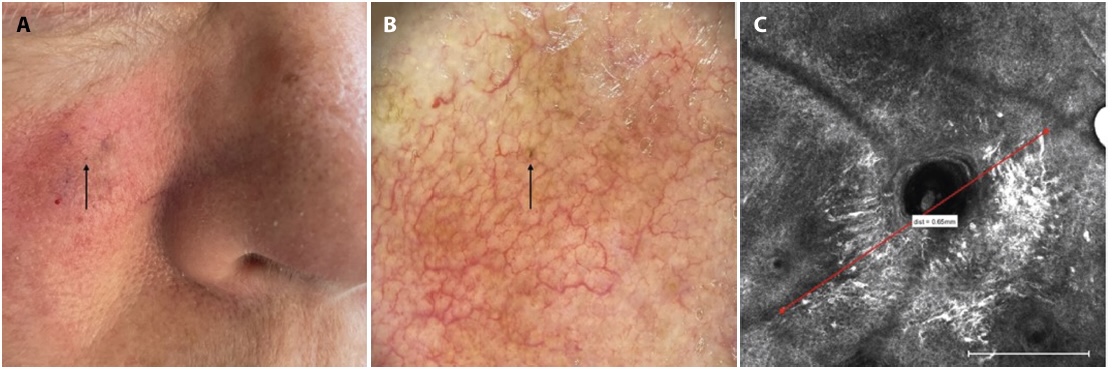Dermatologists Broke the New World Record of Smallest Detected Skin Cancer of 0.65 mm in Size
May is Melanoma and Skin Cancer Awareness Month, and this year, the month began with good news regarding the early diagnosis of skin cancer. A multi-disciplinary team at the Oregon Health and Science University (OHSU) in Portland, Oregon broke the new Guinness World Record of the “Smallest detected skin cancer” by identifying a melanoma lesion that measures 0.65 mm (0.0256 inches) in diameter.
The OHSU team made this record-breaking discovery last year using state-of-the-art, non-invasive imaging technology and they received official certification from a judge from the Guinness World Records on May 1.
Related article: Targeting Metabolism for Noninvasive Multi-Cancer Early Detection Tests
A Deadly Form of Skin Cancer
Melanoma develops in melanocytes, the skin’s pigment-producing cells. It is a relatively rare but deadly form of skin cancer, which accounts for only about 1% of skin cancers but results in a large majority of skin cancer deaths. Also, its aggressiveness also explains why melanoma can be highly dangerous. Unlike other more common forms of skin cancer such as basal cell and squamous cell carcinomas which rarely spread beyond the original tumor site, melanoma is more likely to invade nearby lymph nodes or tissues and metastasize to other parts of the body.
Melanoma incidence has dramatically increased over the past few decades, which is probably due to rising levels of ultraviolet (UV) exposure. According to estimates made from the National Cancer Institute (NCI)’s Surveillance, Epidemiology, and End Results (SEER) Program, the number of newly diagnosed melanoma cases and people who died from melanoma in the U.S. in 2023 will be 97,610 and 7,990 respectively.
Early Detection Saves Lives
Fortunately, melanoma is considered a highly treatable cancer when detected early. With reference to the figures from the above-mentioned SEER program, compared to a 35.1% 5-year relative survival for patients with distant metastasis, 99.6% of patients with localized melanoma of the skin may survive 5 years after the initial diagnosis.
With the aim of achieving early detection of small, localized skin cancer lesions, the OHSU team, led by dermatologist Dr. Alexander Witkowski, an assistant professor of dermatology at the OHSU School of Medicine, reported a non-invasive combination of imaging and molecular techniques for identifying micro-melanomas (< 2 mm in diameter) in the journal Dermatology Practical & Conceptual in January.
Dr. Witkowski first captured the image of a tiny suspected skin lesion on the right cheek of a female patient using a smartphone-based dermatoscope. Afterwards, his team performed additional imaging using reflectance confocal microscopy (virtual biopsy), which revealed the presence of atypical cells indicative of melanoma. Subsequent physical biopsy of the mole of concern, melan-A staining and diagnostic 23-gene expression profile (GEP) test by the team confirmed that the lesion was a micro-melanoma in situ measuring 0.65 mm in diameter.

The OHSU team’s discovery marked the smallest skin cancer (both invasive or in-situ) ever reported. Dr. Witkowski believed that this achievement would be of paramount importance because the melanoma “was found before it had the opportunity to spread to other parts of the body.”
©www.geneonline.com All rights reserved. Collaborate with us: service@geneonlineasia.com










